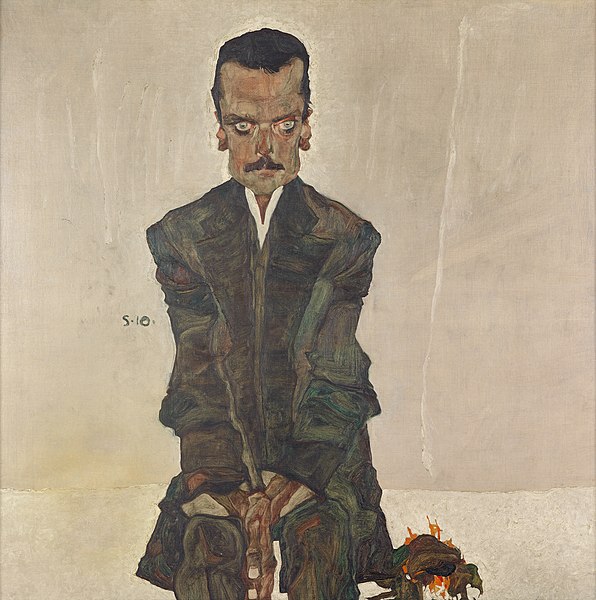Oskar Kokoschka was an Austrian artist, poet, playwright, and teacher best known for his intense expressionistic portraits and landscapes, as well as his theories on vision that influenced the Viennese Expressionist movement.
Oskar Kokoschka in 1963, by Erling Mandelmann
The house in which Oskar Kokoschka was born in Pöchlarn (August 2006)
Kokoschka by Hugo Erfurth, 1919
Portrait of Lotte Franzos (1909), The Phillips Collection
Expressionism is a modernist movement, initially in poetry and painting, originating in Northern Europe around the beginning of the 20th century. Its typical trait is to present the world solely from a subjective perspective, distorting it radically for emotional effect in order to evoke moods or ideas. Expressionist artists have sought to express the meaning of emotional experience rather than physical reality.
Edvard Munch, The Scream, c.1893, oil, tempera and pastel on cardboard, 91 × 73 cm, National Gallery of Norway, inspired 20th-century expressionists.
El Greco, View of Toledo, c.1595/1610 is a Mannerist precursor of 20th-century expressionism.
Wassily Kandinsky, Der Blaue Reiter, c.1903
Egon Schiele, Portrait of Eduard Kosmack, c.1910, oil on canvas, 100 × 100 cm, Österreichische Galerie Belvedere








